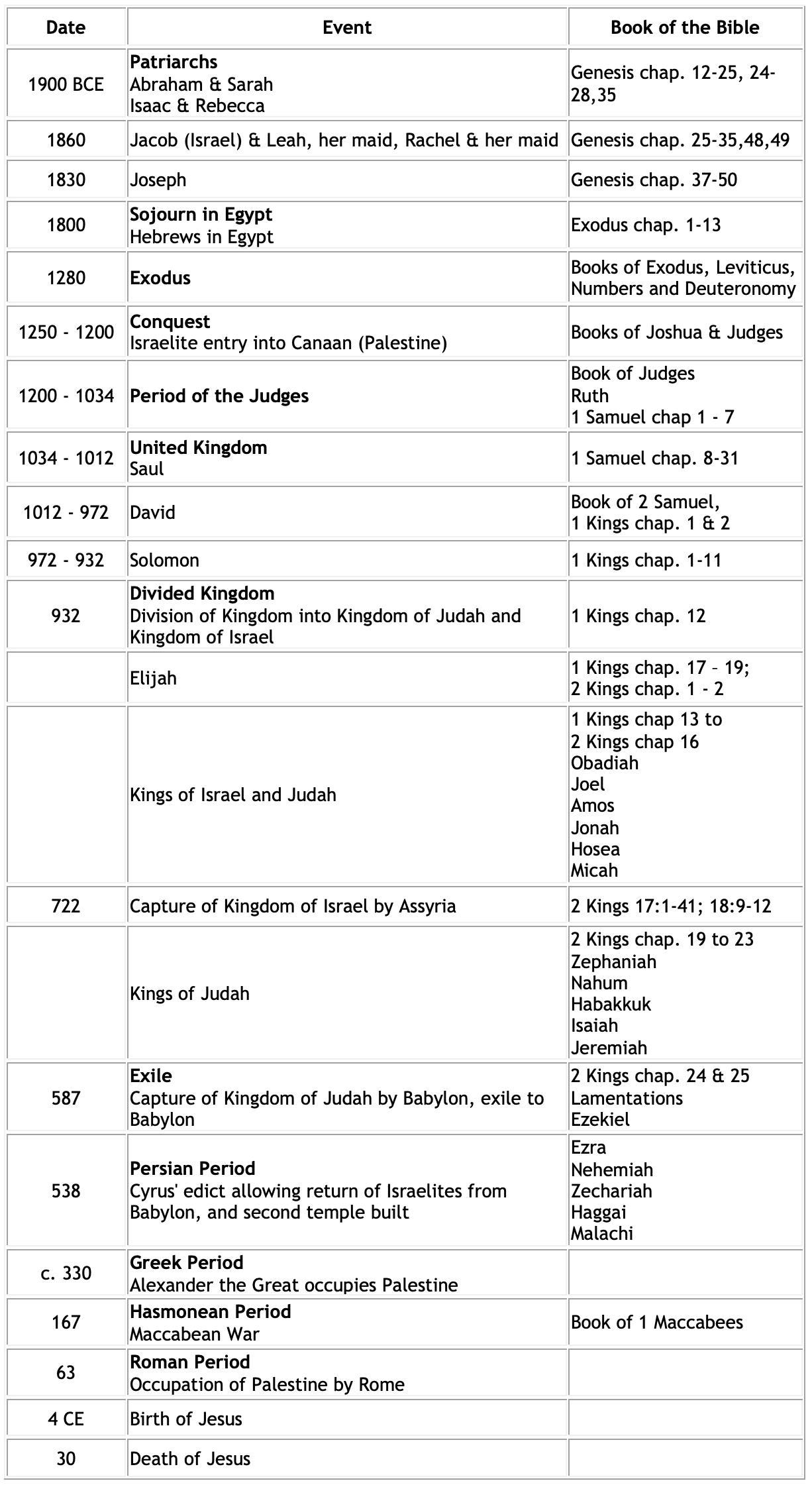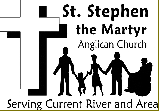Old Testament Survey
The story of the Old Testament is the story of God’s relationship with the people of Israel. Jacob, renamed as Israel, had 12 sons. The twelve tribes of Israel are 10 sons and 2 grandsons (the tribe of Levi was dedicated to the LORD, and the sons of Joseph each became a tribe, Ephraim and Manasseh). The people of Israel are also given the name Hebrews.
Israel’s special relationship begins with Abraham and Sarah. God makes a covenant with Abraham. Abraham is to walk before God and be blameless, he will become a father of a multitude of nations; his name is changed from Abram to Abraham; God will be God to him and to his descendants; all the land of Canaan is given as an everlasting possession; and every male is to be circumcised (Gen. 17:1-14).
God makes a covenant with Abraham’s son Isaac, and with his son Jacob (Israel). Jacob’s family ends up in Egypt during a famine and stays there. They flourish, and later are oppressed by the Pharaoh.
God leads the people of Israel out from Egypt under the leadership of Moses. Through Moses a new covenant is made. The summary is the 10 commandments (Exodus 20:1-17, Deuteronomy 5:6-21).
The Torah is part of the Mosaic covenant. Torah is translated as teaching and as law. It was to guide the people in how to live and how to solve their problems. The Torah is also the name given to the first 5 books of the Old Testament (Genesis, Exodus, Leviticus, Numbers and Deuteronomy), that contain law and history.
A number of festivals and sacrifices are established to help the people remember and make present God’s salvation, and to facilitate their relationship with God. The feasts of Passover and the Unleavened Bread brought to remembrance the Exodus, Tabernacles the sojourn in the desert and the giving of the law. These feasts also were related to the harvests.
The people wanted to be governed by a king. Saul was raised up first, and he proved unworthy. David was raised up, and his heart was right before God. Yet David sinned with Bathsheba. Through the prophet Nathan, God said, “When your days are fulfilled and you lie down with you fathers, I will raise up your offspring after you, who shall come forth from your body, and I will establish his Kingdom. He shall build a house for my name, and I will establish the throne of his kingdom forever (2 Samuel 7:12, 13).
David’s son was Solomon who built the first temple. Because of the use of forced labour, the people revolved and the kingdom split into two kingdoms, Israel and Judah.
The kings and the people began to fall away from the Torah, worshipped other Gods and committed a number of injustices, particularly against the poor. Prophets were raised up to call attention to this, and warned of God’s punishment.
Assyria captured Israel and made Judah a vassal state. The people of Israel were exiled, lost to history. Babylon captured Assyria, and later Judah. The temple was destroyed. The people of Judah were exiled to Babylon.
The exile was interpreted as God’s punishment for their sins.
While in exile a number of ideas from the Zoroaster religion, which were compatible with the Hebrew faith, were adopted. These included Satan and the final battle between the forces of good and evil.
The Persian King Cyrus captured Babylon and allowed the exiled peoples to return and rebuild their places of worship, which allowed the Jews to return and rebuild the temple and walls of Jerusalem.
The Old Testament closes with the promise of a Messiah, who would come and reign as King, establish peace and justice, and give the final judgment.



